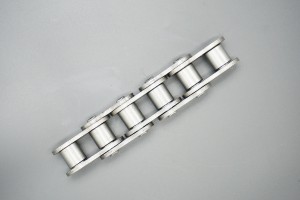How does the roller chain transmit power in the machinery manufacturing industry?
As a traditional chain transmission device, the roller chain plays a vital role in the machinery manufacturing industry. The mechanism and efficiency of its power transmission directly affect the performance of mechanical equipment. The following are the specific ways in which roller chains transmit power in the machinery manufacturing industry.
Basic components of roller chains
Roller chains are mainly composed of the following parts: rollers, chain plates, sprockets, etc. These components work together to achieve effective power transmission.
Power input
Power is usually provided by a power source such as a motor and is first transmitted to the first roller of the chain. In this process, the rotational motion of the power source begins to be transmitted through the first roller of the chain.
Power transmission mechanism
The working principle of the roller chain is based on the rolling of the roller between the sprocket and the chain plate to achieve the transmission function. When the sprocket rotates, the rollers on the chain roll along the tooth grooves of the sprocket, pushing the chain to move together with the chain plate. This rolling friction can transmit power more effectively and reduce energy loss compared to sliding friction.
Meshing transmission
The meshing transmission between the roller chain and the sprocket is the key to power transmission. The pitch of the chain and the number of teeth on the sprocket determine the transmission ratio. During the meshing process, the roller first bears the impact from the sprocket, and then transmits the power to the sleeve, pin and chain plate to achieve continuous power transmission.
Chain tensioning and maintenance
In order to ensure the effective transmission of the roller chain, proper tensioning is necessary. Proper tensioning can ensure the stability and life of the chain transmission. At the same time, good lubrication can reduce the wear and noise of the chain, and regular maintenance can extend the service life of the chain
Application field
Roller chains are widely used in machinery, metallurgy, petroleum, chemical industry and other industries due to their durability, high tensile strength and wear resistance. In these industries, roller chains are used in heavy load and high speed transmission occasions, with the advantages of high reliability and high transmission efficiency
Conclusion
Roller chains achieve effective power transmission in the machinery manufacturing industry through their unique structure and working principle. From power input to chain rolling, and then to meshing with sprockets, every link is crucial. With the continuous development of the industrial field, roller chains are also constantly evolving and innovating to meet the needs of more efficient and environmentally friendly power transmission.
Post time: Jan-01-2025

